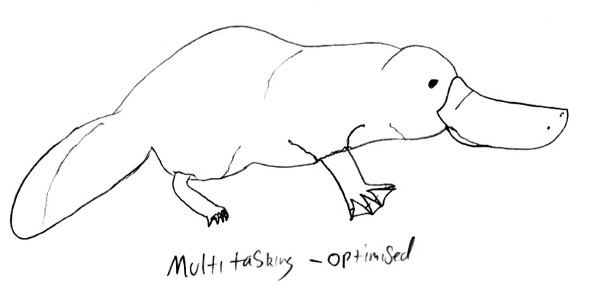Decisiveness

One thing I've been noticing recently is the cost of not being decisive enough. There are a lot of times when I have things to do, but I can't decide which things, or I don't fully commit to one of them. So maybe I want to either do some work or relax, but because I can't decide I end up doing something silly like working with the TV on, which is way less productive and less relaxing than either option on its own.
Decisiveness is always a bit scary because you're ruling so much out every time you make a decision. You gain one thing that you can do at the cost of a million things you could've done. Of course, if you think about it that's total nonsense. You could never have done more than one thing, but that abstract truth doesn't seem to translate well into system 1 monkey brain reasoning. It's so easy for that pure unrefined potential to start seeming valuable when you're not paying attention.
The whole multitasking culture is based on this crazy idea that it's better to half-arse a bunch of things than fully arse one thing at a time. I mean, the motivation is pretty obvious; everyone wants to believe they can do more, and to the extent that believing it makes you spend more it's obviously a behaviour that a lot of industries want to encourage. This is kind of related to yesterday's post, but the benefit of having more options only really kicks in after you've selected one of them (hopefully the best one). Up until that point the extra options are just a cost you pay in time and cognitive load.
Getting through the decision stage quickly and on to doing is best. Overthinking and taking ages to decide is worse. But even that beats never deciding at all.